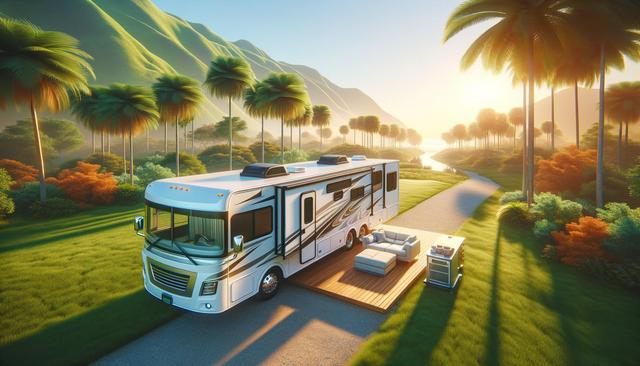The Appeal of RV Camping
RV campers have grown in popularity for travelers seeking flexibility, comfort, and adventure. Whether you’re planning a weekend getaway or an extended road trip, RVs provide a mobile living space that allows you to explore at your own pace. Unlike traditional travel, RV camping eliminates the need for hotel bookings and restaurant stops at every turn. This mode of travel offers a more personal and adaptable experience, especially for families, retirees, and remote workers.
One major reason why people choose RV camping is the convenience of having your accommodation and transportation combined. This means fewer logistics and more spontaneity in your travel plans. You can wake up beside a mountain lake one day and next to a sandy beach the following night. The ability to change your location without packing and unpacking every time is a major benefit that appeals to many modern travelers.
Types of RV Campers
There are several types of RV campers available, each catering to different needs and travel styles. Understanding these options helps you make a more informed decision when choosing a camper that fits your lifestyle. The main categories include:
- Class A motorhomes: Large and spacious, often used for long-term travel or full-time living.
- Class B camper vans: Compact and easier to drive, ideal for solo travelers or couples.
- Class C motorhomes: A mid-sized option that balances space and maneuverability.
- Travel trailers: Towable units that offer flexibility in vehicle use.
- Fifth-wheel trailers: Larger towable RVs that require a special hitch in a pickup truck bed.
Your choice will depend on factors such as budget, travel frequency, and the number of people traveling. For example, families may prefer the larger space of a Class A or fifth-wheel trailer, while solo adventurers might opt for a Class B van for ease of use.
Planning Your Trip
Successful RV camping requires thoughtful planning. While the freedom to move is a major advantage, preparation ensures a smoother and more enjoyable experience. It’s important to map out your route and identify suitable campgrounds along the way. Many campgrounds offer amenities such as electrical hookups, water, and dump stations, which are essential for longer stays.
Here are some planning tips:
- Check campground availability and make reservations if needed.
- Have a flexible itinerary to accommodate unexpected changes.
- Keep a list of essentials including tools, cooking supplies, and safety gear.
- Understand the rules and regulations of each camping site.
Apps and websites dedicated to RV travelers can help you find locations, reviews, and availability. Planning also involves preparing your RV itself—checking tires, engine fluids, and onboard systems before you hit the road.
Living Comfortably on the Road
One of the biggest advantages of RV campers is the ability to bring the comforts of home with you wherever you go. Many RVs are equipped with kitchens, bathrooms, beds, and even entertainment systems. This makes it easier to maintain a routine and feel at home, even when you’re hundreds of miles away.
To make your RV feel more comfortable, consider the following tips:
- Organize your storage spaces to maximize efficiency.
- Use multi-functional furniture to save space.
- Personalize the interior with familiar items like pillows or photos.
- Invest in quality bedding for a good night’s sleep.
Living in an RV also means managing resources like water and electricity wisely. Learning to conserve and monitor your usage will help you stay off-grid longer and reduce your environmental impact.
Community and Lifestyle
RV camping is not just about travel—it’s also about joining a community of like-minded individuals who share a love for the open road. Many RVers form strong connections through campgrounds, meetups, and online forums. This sense of community can be especially valuable for solo travelers or those transitioning into full-time RV living.
There are also various lifestyle options within the RV world:
- Weekend warriors: People who use their RVs for short getaways.
- Seasonal travelers: Those who travel during specific times of the year, like snowbirds escaping winter.
- Full-timers: Individuals or families who live in their RVs year-round.
No matter your level of involvement, RV camping offers a sense of freedom and self-sufficiency that many find deeply rewarding. It’s a lifestyle that encourages exploration, mindfulness, and a closer connection to nature.
Conclusion
RV campers provide a practical and enjoyable way to travel, combining mobility with the comforts of home. Whether you’re new to the RV lifestyle or a seasoned traveler, the opportunities for adventure and connection are abundant. From choosing the right type of camper to planning your journey and embracing the lifestyle, RVing has something to offer for everyone seeking a more flexible and immersive travel experience.




Leave a Reply